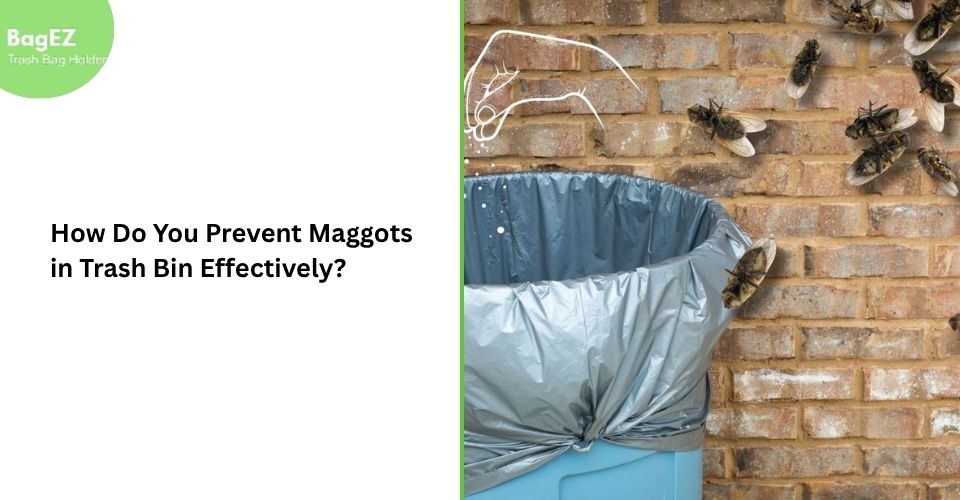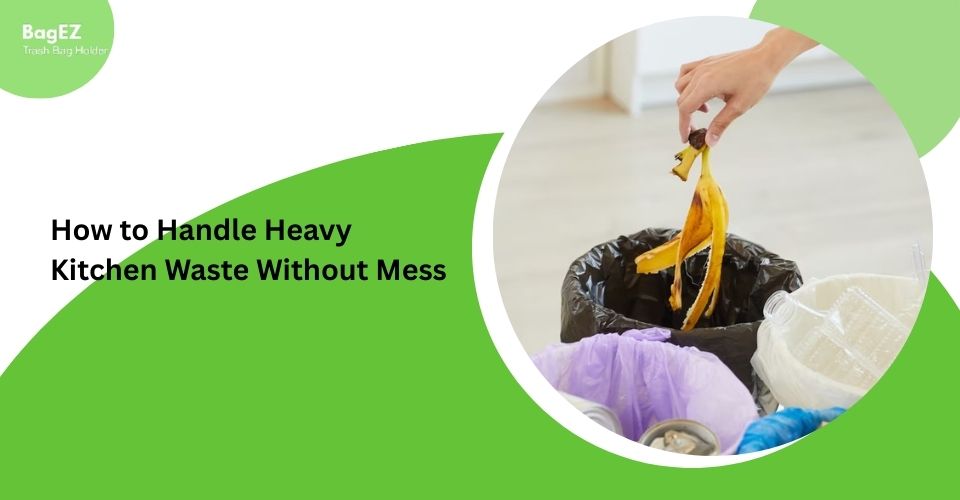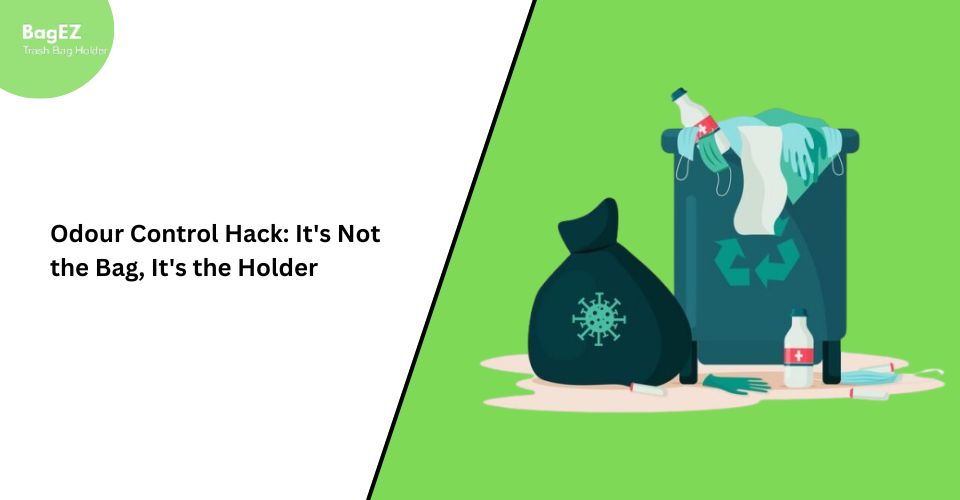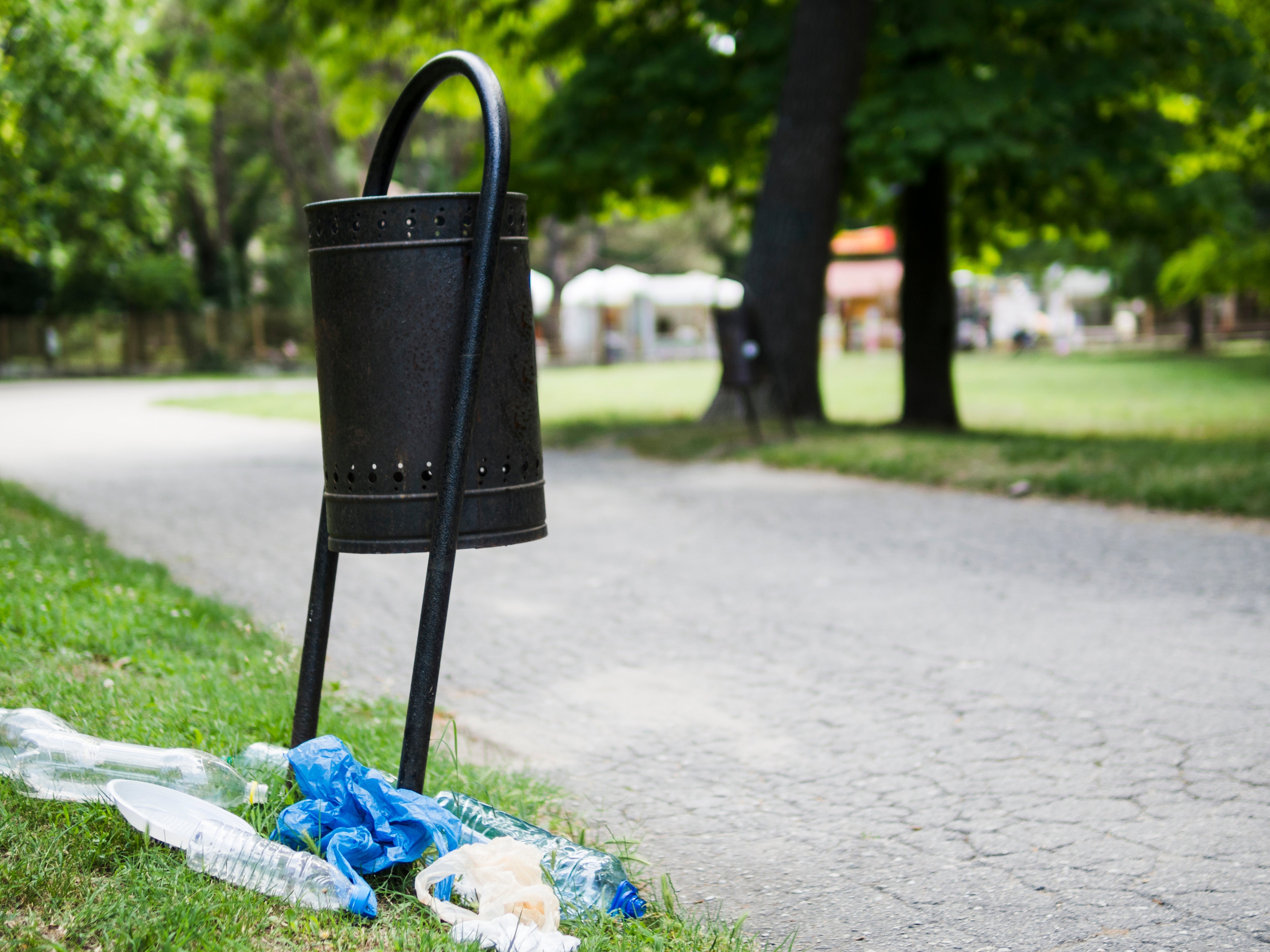And there are not many domestic issues that are even more unappealing to come across than opening a trash bin in a household and discovering a bunch of maggots crawling in it. The mere sight and smell can destroy your day and in case nothing is done the issue can rapidly grow out of control.
The maggot infestations in bins are not unique in hot and humid areas like places where the summer is long. However, by taking a couple of precautions and the correct waste-management practices, this can be done to ensure that your trash is clean, odorless, and hygienic throughout the entire year.
At Bagez, our motto says that the waste management of our home is the first step to cleanliness. On one hand, the presence of maggots can be explained with references to indoor trash bins or outdoor garbage containers, on the other hand, the clue is to know how to eliminate maggots forever.
Why Do Trash Bins Have Maggots?

Maggots are the immature developed forms of flies although normally houseflies and they thrive in warm, moist and organic habitats. A conventional domestic garbage container gives precisely that in case that it holds food remnants, rotting meat, or organic waste. When a fly sits on your rubbish and lays eggs, the eggs are hatched in less than 24 hours into maggots.
One fly can deposit hundreds of eggs at a time and this implies that a trash bag that is left unclean can end up becoming an infestation. Summer heat, remaining food and unclosed lids, and you have the ideal larvae breeding environment.
That is why the first stage of prevention is to make the cycle unattractive to flies, to prevent the cycle before it begins.
Prevention: Step-by-Step How to Keep Your Bins Maggot-Free
Regular hygiene and temperature levels are the best solutions that prevent maggots in trash cans. The following is a simple routine which does work:
1. Cleaning with Good Quality Garbage Bags
Begin by using a good, waterproof bag that is not torn or leaks. Food spoilage is associated with flies and thus it is important to avoid releasing the odor of food in the bag. Specific products such as Bagez odor-blocking bin liners are created to do this - heavy, thick, and puncture proof, they will not leak and will not expose the product to bacteria.
2. Always Store Food Waste Correctly
Always avoid dumping loose leftovers or food scraps in your bin. First wrap them into newspaper or biodegradable liners. Such a tiny practice restricts the amount of moisture and emitted odors, thus extending the time in which your bin will remain cleaner.
3. Empty Your Bin Regularly
Delays in the frequency of garbage collection give time to the decomposition of organic matter, which increases the activity of flies. Ideally, remove the rubbish every 1-2 days, which is more so in warm weather. The bins placed outside the houses should be emptied once a week, and they should be tightly closed between.
4. Clean the Bin After Each Use
The most excellent garbage bags will leak with time. Once full of rubbish rinse your bin with warm, soapy water or vinegar. To clean the house further, combine one cup of baking soda with a few drops of lemon essential oil - this removes smell and is a natural cleaning agent.
5. Keep Lids Closed and Secure
Even the smallest holes can be entered by flies. Keep the bin neatly closed and preferably use a design with an attached locking lid or foot pedal. When you keep the bins outside, store them in a shady place to minimize the amount of heat inside them.
6. Apply Bin Deodorizers or Liners
To store moisture and prevent odor, you can put a small deodorizer or dry liner at the bottom of your bin. There are owners of homes that use cat litter or coffee grounds as a natural means of odor control. One can also keep things fresh by sprinkling baking soda prior to adding a new bag.
Indeed, how to get rid of maggots when they have already appeared.
-
You have noticed maggots, no alarm. You will be able to destroy them without the use of hard chemicals.
-
Boiling Water Treatment: Add boiling water to the bin in order to kill larvae immediately. Wipe off with soap and scrubbing.
-
Vinegar Solution: Add Vinegar and water in equal quantity, spray the bin, and allow the solution to dry in 30 minutes before rinsing.
-
Salt or Lime Powder: Sprinkle affected parts with salt or garden lime; both are drying agents and maggots die away.
-
Wipe Down Clean: Wipe the bin with a disinfectant or bleach water solution and dry it fully under the sun.
Following cleaning, you need to replace your liner and it is advisable to use Bagez extra-seal bags in order to avoid them.
The Growth of Climate and Maggots: Why it Matters about Heat
The temperature is one of the key factors in fly activity. Maggots develop quickly and eggs are hatched quickly in higher temperatures than 25-C which is 77-F(262F). That is why extra attention should be paid to summer months.
Bins stored in the shade and with heat resistant liners such as those provided by Bagez can greatly slow down the process of decomposition and limit odor- two very likely attracting factors to flies. When you live in an apartment or a small house with little ventilation, it is better to have the food waste in a closed container in your refrigerator till the time of collection.
Green Waste Management: Clean Future
The prevention of maggots also has to do with sustainable disposal of the waste. Organic waste is sortable and compostable, which means that people can decrease garbage accumulation and avoid contamination by properly sorting and composting organic waste.
Composting Hack: Any person who composts should ensure that the bin is closed and not close to the main garbage bin. Fly infestation can be controlled by aerated lids and dry layers of carbon (such as dry leaves or paper) since flies are naturally attracted to compost.
Bagez has eco-smart garbage bags that are biodegradable but strong and you can use them to handle waste in a responsible manner without the need to compromise on convenience. Handling waste in a sustainable manner does not only minimize pests, it also helps to make the environment healthier.
Common Mistakes to Avoid
There are a lot of individuals who are not aware of making tiny mistakes that cause maggots. The following are the habits that would be changed at once:
-
Disposing of trash bags that are not closed or sealed at night.
-
Disposing of liquids in bins (drain or dry up waste first).
-
Keeping the bins close to kitchen door or windows where flies have easy access.
-
Demonstrating that it is more than a week since they took notice of bin cleaning.
-
Carrying thinly sown and low quality bags that are easily torn.
These are the most typical slip-ups that you can prevent and, in doing so, the likelihood of the infestation will be minimal.
Why Prevention Is Easier Than Cure
Getting rid of maggots is never pleasant, but preventing them is simple when done consistently. Proper waste handling saves you time, protects your family’s health, and eliminates unpleasant odors.
That’s why at Bagez, our products focus on the essentials of home hygiene: strength, odor protection, and safety. Every feature, from reinforced seams to multi-layer film, is designed to make waste management efficient and maggot-free.
When you manage your trash correctly, your home environment becomes fresher, safer, and easier to maintain.
Quick Checklist: Daily and Weekly Bin Care
Daily:
-
Dispose of food waste promptly.
-
Use sealed liners.
-
Keep lid closed.
Weekly:
-
Empty outdoor bins fully.
-
Wash and disinfect.
-
Sprinkle baking soda or use a deodorizer.
Monthly:
-
Deep clean all bins.
-
Inspect for leaks or wear in garbage liners.
-
Replace old or damaged bins.
Following this simple schedule will keep your bins clean, maggot-free, and odorless year-round.
Final Thoughts
Maggot prevention isn’t just about aesthetics, it’s about hygiene and comfort. Once you understand how maggots form, you realize that prevention is far easier and more cost-effective than dealing with infestations.
The key lies in using durable, odor-resistant bin liners like those by Bagez, maintaining a regular cleaning schedule, and controlling moisture and odor sources. These simple steps ensure that your trash stays contained and your home remains a healthy, pleasant space to live in.
A clean bin reflects a clean home, and that’s a standard every household can maintain with a little consistency and the right tools.
FAQs
1. How often should I clean my trash bin to prevent maggots?
Ideally, rinse and disinfect your trash bin once a week. In warmer months, increase the frequency to twice weekly to stay ahead of fly activity.
2. Can I use bleach to clean my bin?
Yes, diluted bleach is effective for killing bacteria and maggots. However, for an eco-friendly approach, vinegar and baking soda offer safe, natural alternatives.
3. What if maggots keep coming back even after cleaning?
Persistent infestations usually mean flies are accessing your bin easily. Check for gaps in the lid, replace torn liners, and use odor-blocking bags like Bagez to seal food waste completely.








